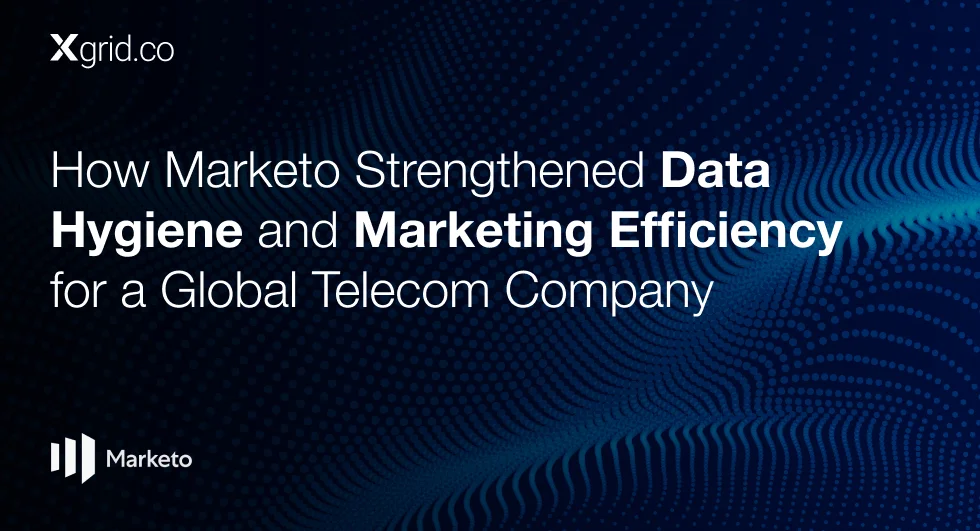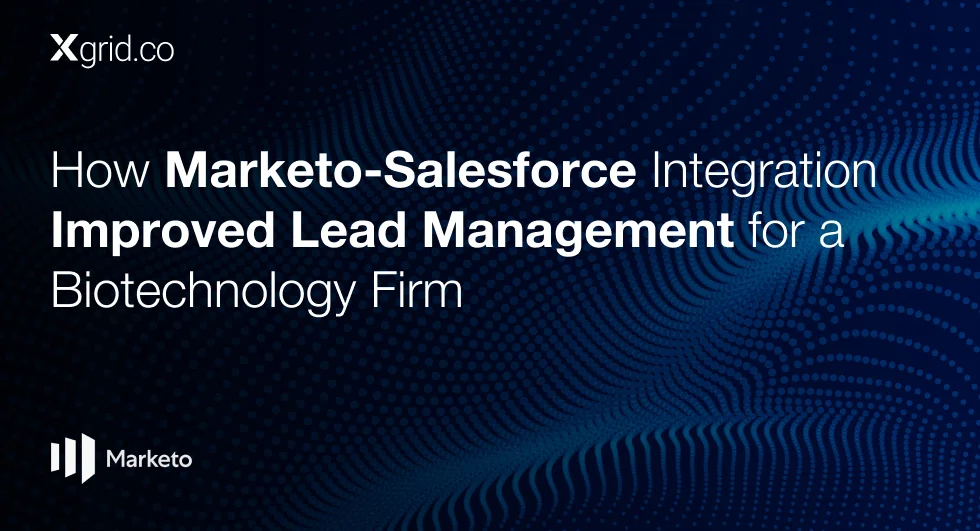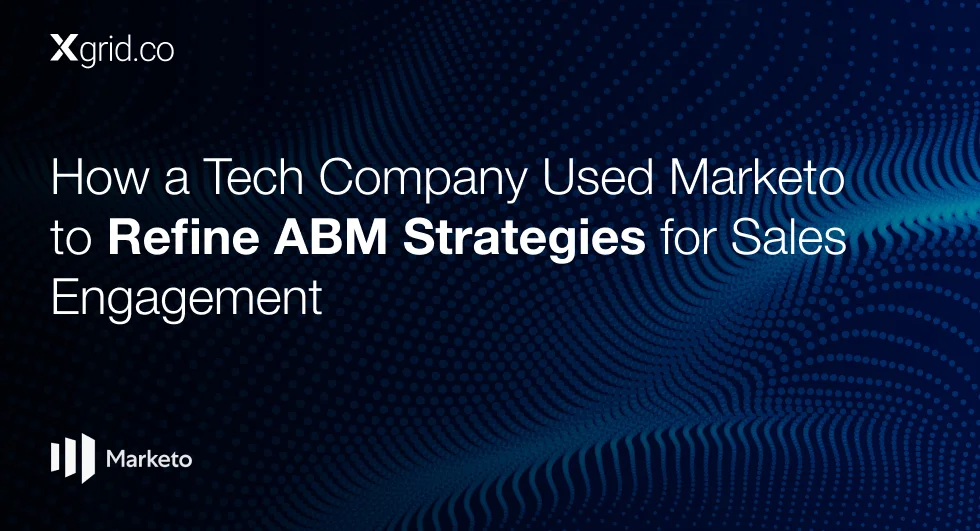The Power of Personalization in Marketing: Insights from Marketo
This level of personalization, he explains, is key to building strong, long-lasting relationships with customers in the digital age.
Beyond Segmentation: Delivering One-to-One Experiences
Most marketing platforms offer basic segmentation – grouping customers based on shared characteristics like age, location, or purchasing history. While this is a step in the right direction, Henley emphasizes that Marketo goes further by enabling true one-to-one personalization.
Marketo allows businesses to use detailed customer data to craft individualized messages that resonate with user intent, unique preferences and behaviors. It’s not just about inserting a customer’s name into an email; it’s about delivering content that aligns with their specific interests and needs.
“Marketo empowers you to engage customers at the right time with the right message and in the right tone for them,” says Henley.
Leveraging AI for Real-Time Personalization
Marketo’s personalization extends beyond traditional marketing channels. It harnesses the power of artificial intelligence (AI) to analyze customer behavior in real time, allowing businesses to adapt their messaging and offers based on current customer activity.
For example, if a prospect visits a website page featuring a specific product, Marketo can trigger an automated, personalized follow-up email that provides more information or a special discount related to that product.
“AI has helped us to drive the conversation,” Henley explains. “It allows us to create content that arrives at the right moment with the right tone, delivering what the customer needs at that point in their journey.” This approach ensures that customers receive information when they are most likely to act on it, increasing the chances of conversion and engagement.
Dynamic Content Creation: Tailoring Messages to Individual Preferences
Marketo’s dynamic content creation tools are at the heart of its personalization capabilities. The platform allows marketers to create content blocks that change based on the recipient’s profile, behavior, and preferences.
For example, a technology company using Marketo could send an email promoting its latest software suite. However, the content of that email could vary significantly depending on the recipient. A small business owner might receive messaging that emphasizes ease of use and affordability, while an IT director at a large corporation would see details about the software’s scalability and security features.
This level of personalization isn’t limited to email. Marketo extends it to SMS, in-app notifications, landing pages, and other channels, creating a consistent, personalized experience across every customer touchpoint.
Increasing Engagement Through Tailored Experiences
Henley points out that “Marketo allows you to have a two-way conversation with customers digitally at first, and then pass them through to the sales team for more traditional engagement.” This dynamic interaction is essential, especially in markets where the sales cycle involves multiple touchpoints and decision-makers.
Consider a luxury automotive brand that wants to engage potential customers considering a high-end vehicle. With Marketo, they can track each prospect’s digital interactions – from downloading a brochure to configuring their dream car online.
Using this data, the brand can send tailored messages that align with the customer’s journey. For instance, after the customer explores a specific model’s features online, Marketo can automatically send a personalized follow-up email offering a virtual test drive or an exclusive dealership event invitation.
This approach goes beyond merely nurturing leads; it creates an immersive and tailored experience that resonates with high-value customers.
Maximizing the Impact with AI-Driven Insights
Personalization is only as effective as the data and insights driving it. Henley underscores that “Marketo doesn’t just allow you to send a message; it provides you with the insights to make that message relevant and impactful.”
By analyzing data on how recipients engage with different content types and formats, Marketo enables businesses to continually refine their strategies.
For example, if a particular group of customers shows a strong preference for receiving offers via SMS rather than email, Marketo’s AI-driven analytics will identify this trend. Marketers can then adjust their campaigns accordingly, ensuring that each customer receives communications through their preferred channels.
This proactive approach enhances customer satisfaction and increases the likelihood of conversion.
Driving Revenue Through Personalized Engagement
In the end, personalization isn’t just about creating a better customer experience; it’s about driving revenue growth. Marketo’s sophisticated automation and personalization capabilities help companies deliver targeted campaigns that move customers through the sales funnel more effectively.
By understanding each customer’s unique journey and delivering relevant messages, businesses can shorten sales cycles, increase customer lifetime value, and foster brand loyalty. “Marketo is not just a marketing tool; it’s a revenue-generating engine,” Henley notes.
This makes Marketo an invaluable asset for C-level executives looking to implement a strategic, data-driven approach to marketing.
However, when it comes to implementing Marketo, companies often encounter challenges that make outsourcing Marketo a necessity. The complexities of configuring advanced workflows, integrating with existing systems, and ensuring data consistency can overwhelm internal teams, particularly those lacking specialized knowledge or resources.
In Summary
Marketo’s advanced personalization capabilities enable businesses to create dynamic, one-to-one customer experiences that drive engagement and loyalty. By leveraging AI, real-time insights, and multi-channel content delivery, Marketo empowers companies to deliver the right message at the right time, maximizing impact and revenue.
Key Takeaway: Marketo’s personalization tools transform marketing from a one-size-fits-all approach to a dynamic, customer-centric strategy, delivering measurable value and enhancing customer relationships.
Downloads
Article (PDF-276 KB)MOST POPULAR INSIGHTS
- How Marketo Strengthened Data Hygiene and Marketing Efficiency for a Global Telecom Company
- How Marketo-Salesforce Integration Improved Lead Management for a Biotechnology Firm
- How a Tech Company Used Marketo to Refine ABM Strategies for Sales Engagement
- How Marketo Campaigns Were Streamlined with Templates and Tokens
- How Marketo Solidified Marketing Insights with Custom Attribution Models
Related Articles
Related Articles

Established in 2012, Xgrid has a history of delivering a wide range of intelligent and secure cloud infrastructure, user interface and user experience solutions. Our strength lies in our team and its ability to deliver end-to-end solutions using cutting edge technologies.
OFFICE ADDRESS
US Address:
Plug and Play Tech Center, 440 N Wolfe Rd, Sunnyvale, CA 94085
Dubai Address:
Dubai Silicon Oasis, DDP, Building A1, Dubai, United Arab Emirates
Pakistan Address:
Xgrid Solutions (Private) Limited, Bldg 96, GCC-11, Civic Center, Gulberg Greens, Islamabad
Xgrid Solutions (Pvt) Ltd, Daftarkhwan (One), Building #254/1, Sector G, Phase 5, DHA, Lahore




